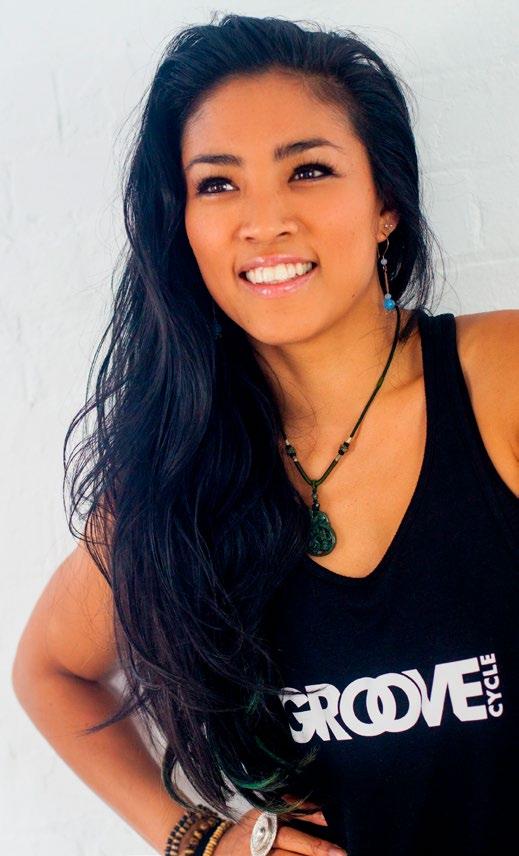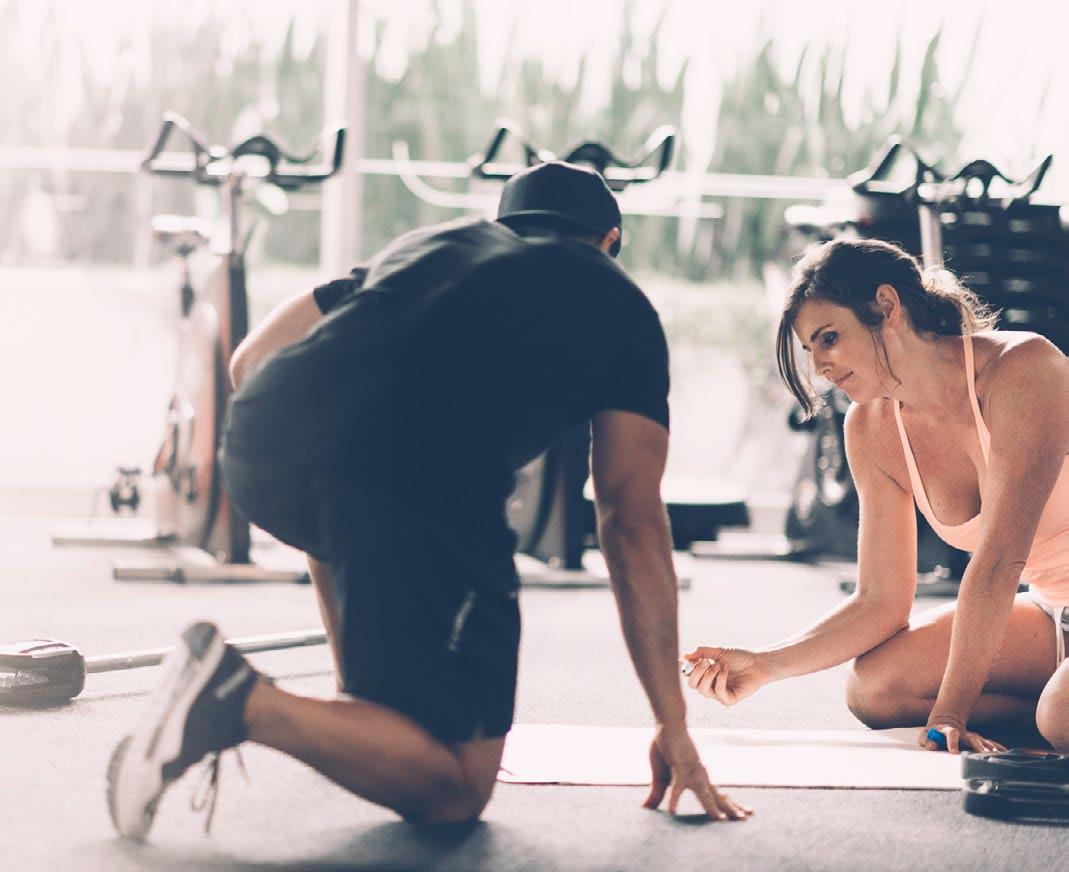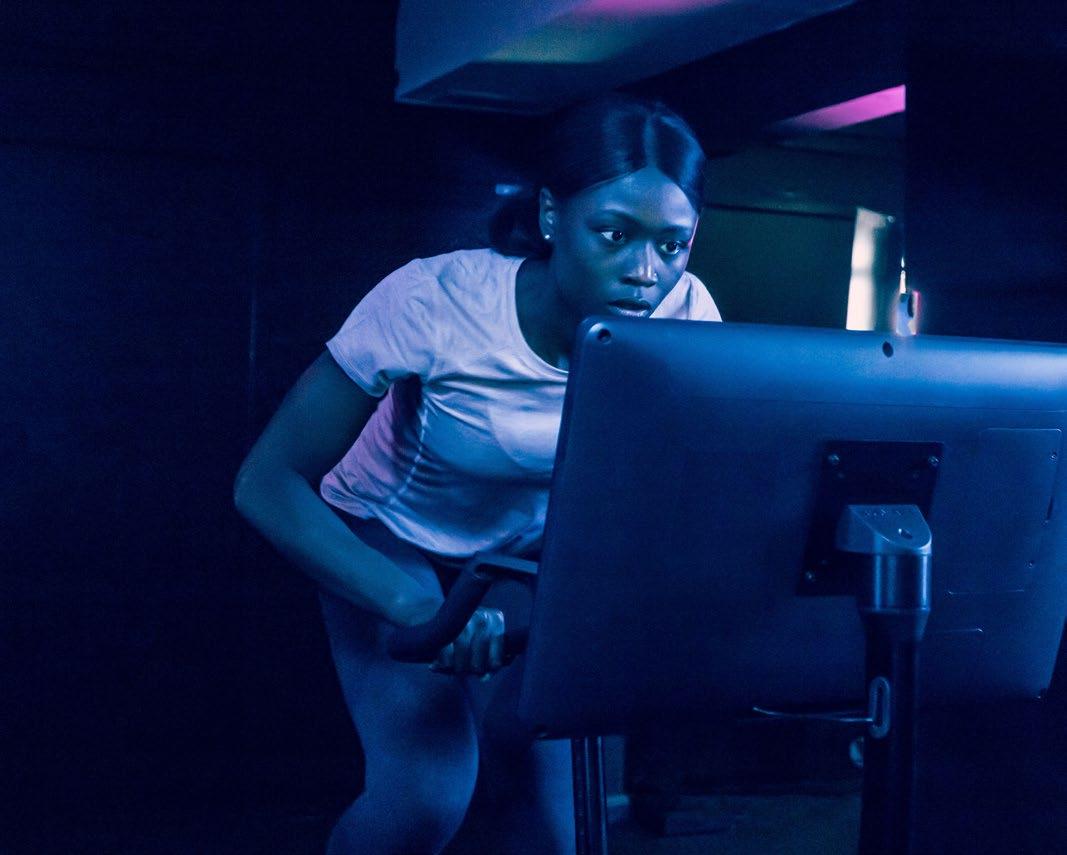
10 minute read
GET THE WORLD GROOVING
In the first of our rockstar instructor series, GrooveCycle founder SJ Aboboto explains how a background in dance shaped a cycling concept where results are measured on the breadth of your smile
“It all started when I was six years old, dancing to Kylie Minogue’s The Locomotion in our front room while watching Top of the Pops on TV,” ex plains Sarah-Jane (SJ) Aboboto, indoor cycling superstar and founder of GrooveCycle. “Little did I know that years later I would be dancing with Kylie on tour!”
She rewinds the story: “I always loved being ac tive, playing rounders and netball and running the 100m when I was at school. But dance and performing were always my passion.
“I was essentially self-taught – my parents came to the UK from the Philippines with very little money, and there were other priorities that came before expensive dance school fees – but I had a natural skill and musicality and I just loved to dance.
“I loved making up my own dances too. I was very lucky to be at a school where the teach ers were so supportive, investing their own time out of school hours to rehearse and prepare for shows. By the age of 11, I was choreographing all the shows; you normally had to be in year 11 to be allowed to do that.
“The thing is, I’ve always been able to not only dance myself, but to direct others in a way that they can dance too.”
An unexpected journey
She continues: “All that said, when I left school, I went to work at Heathrow and on the Heath row Express for a couple of years. I was on the verge of applying to be a train driver when, aged 21, I went to an open audition to be one of Kylie’s dancers. There were hundreds of girls there, and four places up for grabs, and I got one of them. I was with her for about a year and a half, doing things like Top of the Pops and her European tour. I learned so much, really training on the job.
“After that, I danced on-stage at awards ceremonies – for the likes of Gwen Stefani and Kanye West – before properly getting into the choreography side of things. I choreographed the opening of the Rolling Stones’ 50th anniversary concert at the O2 London, and I worked with the creative director to choreograph the 2012 Olympics and Paralympics closing ceremonies, teaching the moves to the army of volunteers.
“Since then, I’ve done quite a lot of mass movement choreography – for Buckingham Palace, for example, and the UEFA Champions League. For me, everyone can dance. If your body re sponds when you hear music, that’s dancing. That’s the message I focus on when it comes to mass choreography.
“The Olympics had an extra layer of challenge, in that the volunteers were of course all putting in their time for free – and we’re talking months of preparation. I really had to earn their support, make it fun for them, make it achievable what ever their age or dance ability. That was a great lesson for me.”
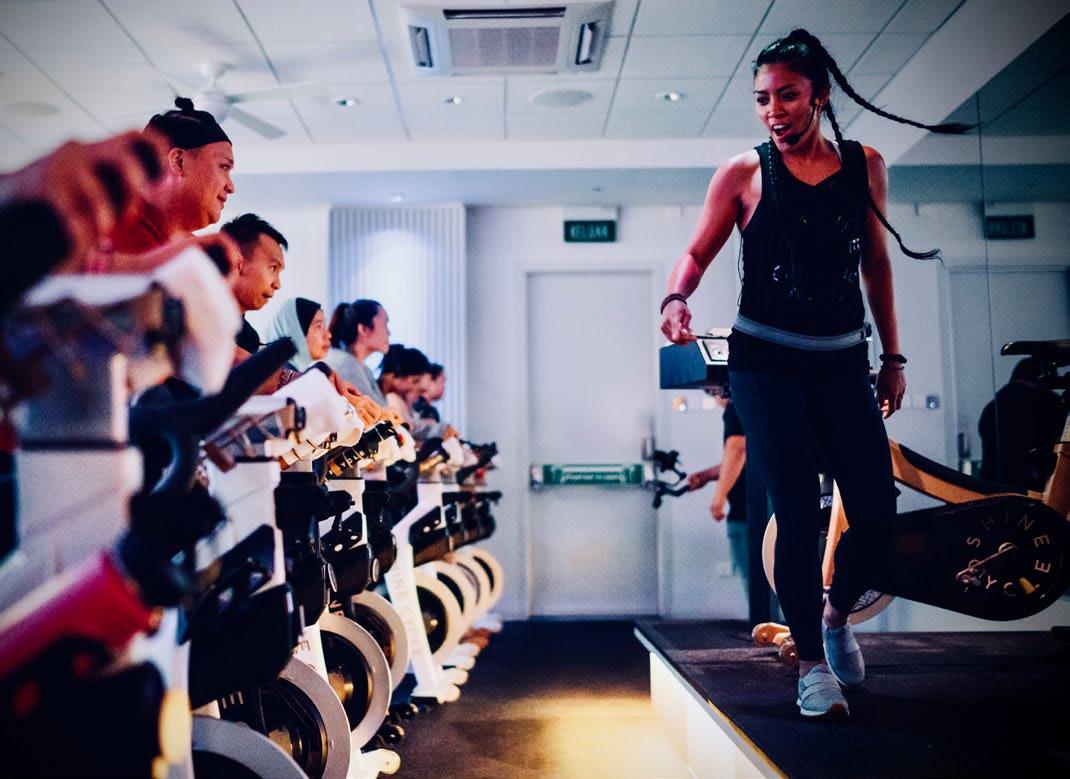
Finding a groove
SJ continues: “So I guess my journey has taken me from dance, through choreography to movement; the last time I danced myself was in the Olympics closing ceremony. And it has brought me to an unexpected place: indoor cycling.
“It’s funny because, as a professional dancer, I always said you would never see me in a gym or on an indoor bike. I danced for the love of it; fitness was just a by-product. I never wanted to have to try to get fit – that looked like a lot of hard work and not much fun!
“But in fact, indoor cycling has all the energy and musicality of dance – or at least, it can have, and that’s the way I approach it. I don’t even miss dance because in a way I still do it. I just do it on a bike now!” She continues: “I first fell in love with indoor cycling about six or seven years ago, when I was introduced to SoulCycle in NYC. I loved the energy of the instructors: how engaging they were, how on-point with the music, how they took you on an emotional journey. Of course, the lighting and sound systems were great too, but having an awesome room isn’t enough – it’s the energy of the instructor that will always make or break a cycling studio.
“So, this is where my indoor cycling story began, and it soon led to me creating GrooveCycle – a dance-based cycling class that I guess is a bit like Zumba on a bike, in that it’s fun and opens the audience up to non-cyclists.
“About five years ago, I started renting the 90-bike studio at what was then The Reebok Sports Club in London’s Canary Wharf, now The Third Space, to run classes under my Groove Cycle brand. The studio had mirrors, so that was a big tick in the box: mirrors are important for my classes, because you need to see yourself moving alongside everyone else. It gives you real body awareness, not to mention a great energy boost.
“However, back then the studio had no lighting, so I would turn up to each class with my own lighting in a suitcase – five lights and five extension leads – which I would control via remote control: red when I wanted people to push harder, yellow when I wanted them to reflect, circulating all the colours when I wanted them to let go.
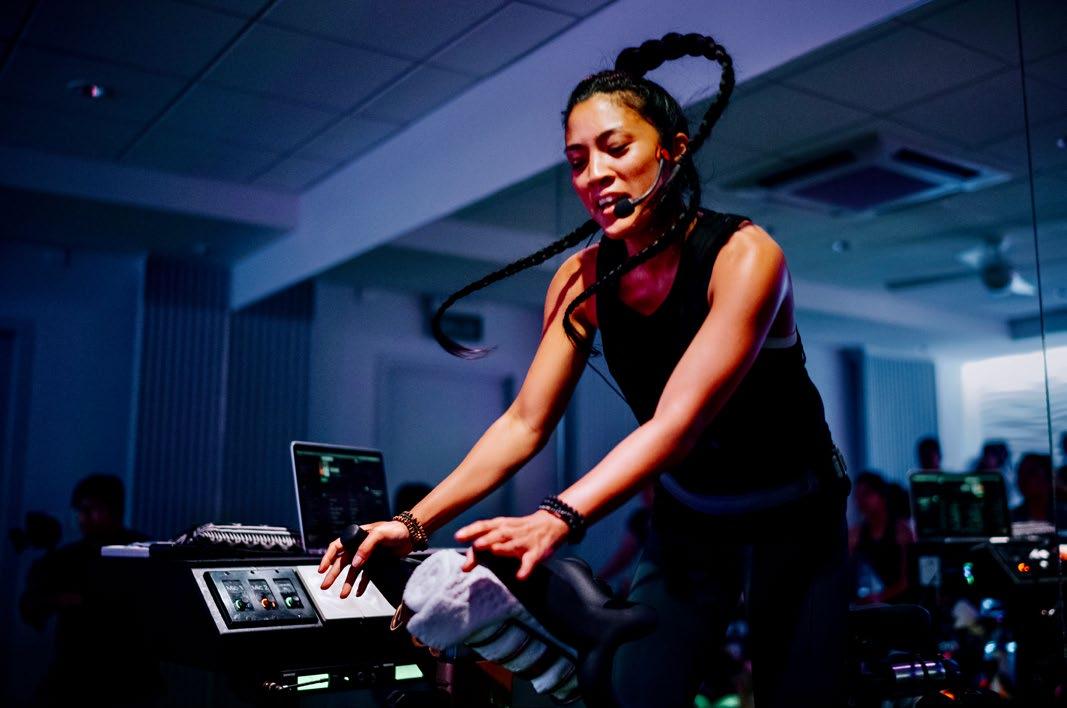
“And people did let go. There’s always a perception, especially in areas like Canary Wharf in the high-pressured environment of the City, that people are very serious. My experience though: if you give people an opportunity to let go and express themselves, they will.
“We were doing some quite new stuff, with upper body movements and choreography on a bike – bear in mind that SoulCycle was nowhere near the brand it is now, and if I recall correctly both Psycle and Boom Cycle had opened just one studio each – but people kept coming back. They liked what we were doing. The classes were open to non-members as well as members and were very popular. We were doing seven or eight classes a week – me, plus other instructors I trained – and they were full.
“We had two styles of class: Groove was a bit SoulCycle-esque, but with more groove to it; and GrooveCycle Dance had real choreography going on. But it was all accessible to everyone, and a big part of that was the tempo. My view is you can’t go too fast: it makes it too hard to follow and people’s technique falls apart, plus you can find your groove better at a slower cadence.
“I generally aim for about three-quarters of our classes to be no more than 65–90 RPM, and when we’re adding more choreography we’re riding at the lower end of that range. We then work at a higher resistance for a good workout.”
Life’s twists & turns
She continues: “The logical next step might have been to have taken that success and open my own GrooveCycle studio, but that’s incredibly expensive to do – and equally important, that ended up simply not being the route life decided to take me.
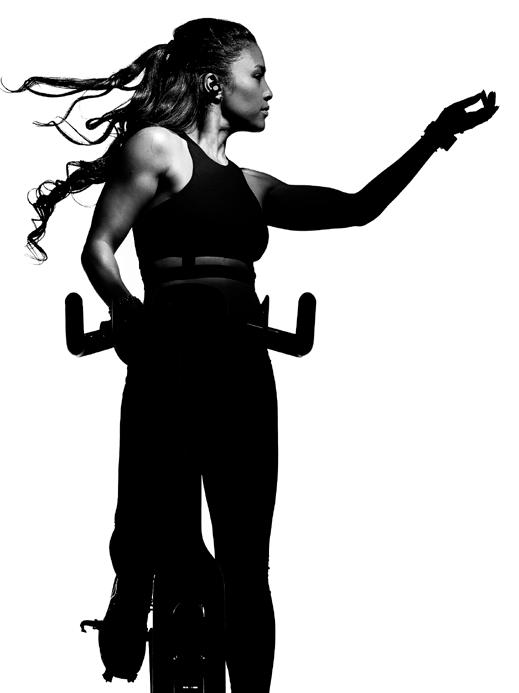
“I became ill a couple of years ago – I just wasn’t getting any balance in my life – and I took a step back from things for the best part of a year. I’m back in the saddle again now, but for now I just run one GrooveCycle class each week, still in rented studio space. That in itself is a challenging model: you never get peak slots, because clubs have their own signature classes they want to run at peak times, and it’s hard to protect your programme and your brand. But I do enjoy it and I will look to scale it up again in the future.
“That may even involve me finally opening my own studio, although if I do, it might simply be a space where I and a few selected instructors can record classes to release online – a way of scaling and at the same time controlling the quality. It takes a lot to train someone up as an instructor, especially with all the elements in our classes, and in any case, online is a very popular way for people to consume fitness now.
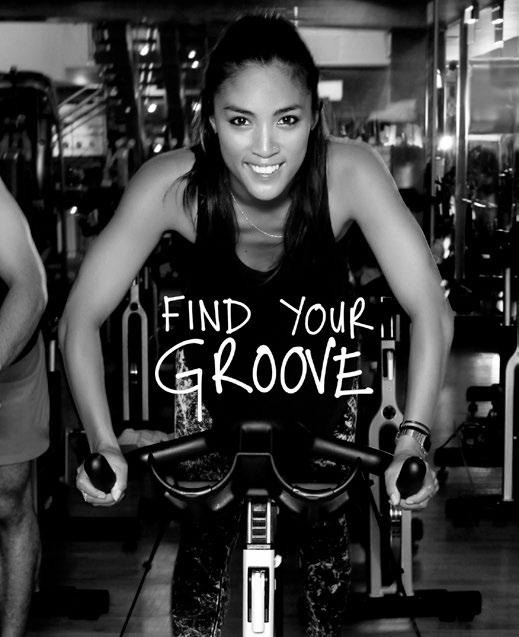
“As part of that, I’m thinking about creating shorter – five- to 15-minute – programmes to make it even easier for people to make the shift from inactivity to activity.”
But SJ hasn’t ruled out expanding the live offering. “I’m considering launching GrooveCycle courses to train instructors. Alternatively, I might design off-the-shelf programmes – Les Mills-style – that instructors can take and use, complete with playlists and choreography. We’ll see. I always have so many things I want to do, but I would love to be able to take the joy of GrooveCycle out to more people.”
Love what you do
The enthusiasm flows, undiluted, as SJ continues her story: “In the meantime, over the last year or so, I’ve found myself getting more and more into consulting and education. I’m a mas ter educator for Stages, for example, coaching instructors in its Beats training. And I’m consultant and head trainer for David Lloyd Clubs as it rolls out its Rhythm and Cyclone concepts across its estate. I also created the cycling programming for Another Space, before Third Space sold those studios, and I consult for a number of other boutique operators.
“Throughout that process, I’ve worked with a lot of people from very different backgrounds, from fitness instructors who know cycling but who aren’t necessarily natural performers, through to dancers who may never have been on a bike before but who have musicality and performance running through their veins. I coached one cycling newcomer, Leanne, who has gone on to become one of Peloton’s main London instructors. Meanwhile, for those coming from more of a fitness background, I’ll work with them on musicality – teaching them how to select music that creates the right energy, and how to then work with that music to get people to respond in the way they want.
“Ultimately, I believe it can all be coached, with one caveat. You have to genuinely love cycling and love helping other people. You have to want to connect and find the best in each and every individual in the room. Being an indoor cycling instructor isn’t about being a one-(wo)man band. You have to love every aspect of it, and that can’t be faked. You have to bring real energy and authenticity to the room.
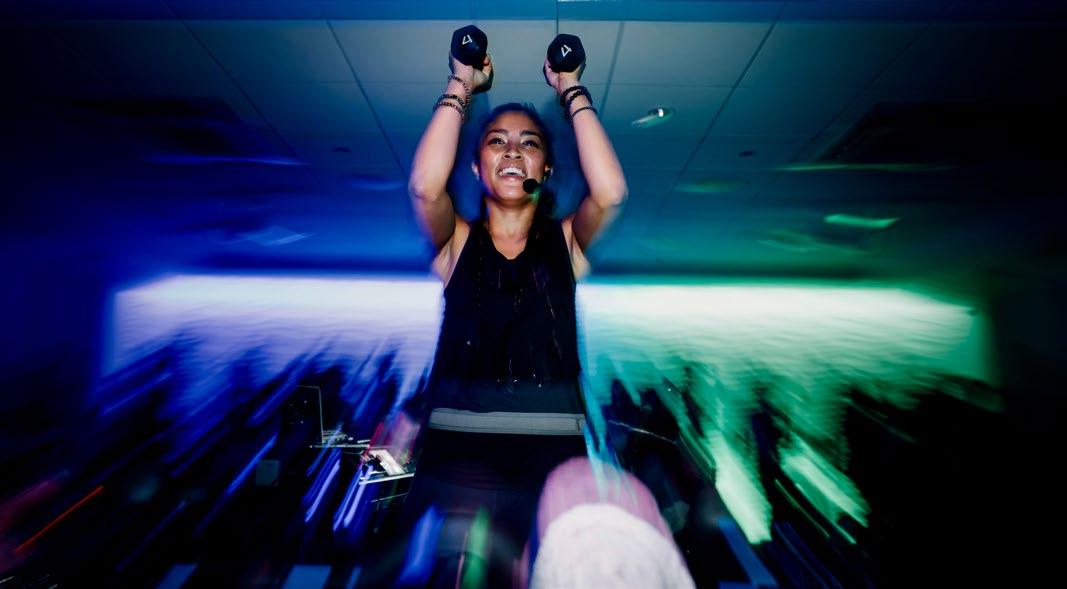
“My personal mission is to get the world grooving – letting go, having fun, enjoying life. Yes, also working out, but under no pressure to do it any way other than your own. It’s about having a good time and leaving the room with a smile on your face. Cycling purists may not like my style of programming, but for me, as long as it’s safe, I think it’s good to offer people a fun alternative. It’s certainly a way to broaden the audience and get more people moving.
“And if you want to challenge me on results, that’s OK too. We do give people a really good workout. But equally, my view is this: if someone who originally turned up to my class tense and stiff and shy gets to a point where they’ve let go, have more confidence, are enjoying movement and leave class happy – quite honestly, that’s the sort of progress and results I like to see.”
